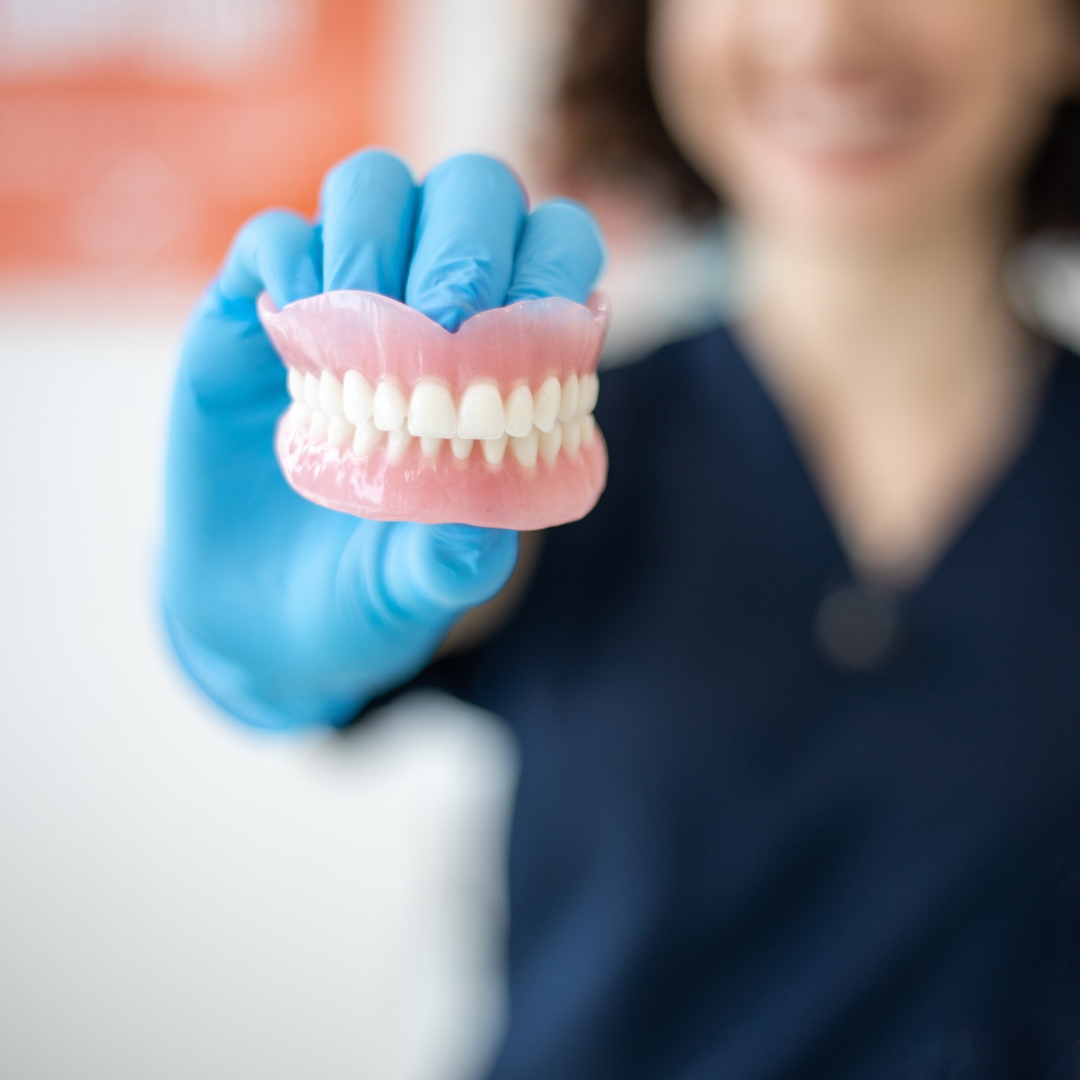
The main purpose of dentures is to repair damaged teeth, restore oral function, and enhance the appearance of a smile.
Partial dentures cover spaces left by missing teeth, immediate dentures are fitted immediately following tooth extraction, and full dentures are appropriate for people who have lost all of their natural teeth.
Dentures improve a patient’s quality of life and general wellbeing by giving them back the confidence to chew, speak, and smile.
People who are missing teeth often turn to dentures, which have a number of advantages. These advantages include:
Enhanced appearance:Dentures can restore a smile that looks natural, boosting self-esteem and confidence.
Improved dental health: Dentures can stop neighboring teeth from moving, which can lead to bite issues or discomfort in the jaw joint.
Improved speech: Speech patterns may be affected by missing teeth, but dentures can help.
Improved chewing ability: Dentures help improve the chewing ability leading to better digestion.
Cost-effective: Dentures may be less expensive than other tooth replacement options.
FAQ
How does one go about getting a new denture?
A typical type of denture typically requires four to five appointments over the course of a few weeks to prepare.
Among the steps in the procedure are: To measure how you bite, a bite registration and an impression of your gums are obtained. After that, the jaw relation is measured and a wax try-in is completed. You can also view and try on your dentures after this step, before they are finished and acrylized. You receive the new denture at your final appointment.
Does taking out dentures at night become necessary?
Yes, it is required of denture wearers to remove their dentures at night and store them in water or soaking solution. When you remove your denture at night, the supporting tissue has time to heal and rest. Additionally, you might come into contact with your saliva’s helpful antimicrobial agents when you take out your affordable denture.
For what duration is a denture meant to last?
The typical lifespan of a denture is seven to ten years. However, this depends on a number of things, such as whether or not it should be cleaned after each meal and kept in water overnight. If there has been gradual bone loss over time, or if a tooth has moved because an adjacent tooth is missing, it can also affect how well the denture fits.
Is it appropriate to use toothpaste to clean my denture?
Every day, brush and rinse your affordable dentures; do not use toothpaste.
Due to the abrasives in many commercial toothpastes, which can cause scratches where food and plaque can accumulate and eventually harm the denture, you should be cautious when using it. Instead, clean them with water and a soft bristle brush after each meal.




